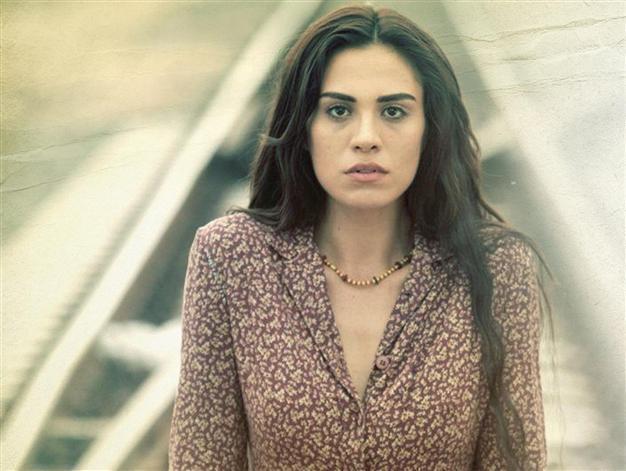Writer’s works still in demand decades later
EMRAH GÜLER Hürriyet Daily News

Orhan Kemal’s ‘Kötü Yol’ is the story of a young woman, played by Şükran Ovalı, who escapes from an arranged marriage, as well as a cheating boyfriend.
The frustrations of the working class, the changing face of feudal Turkey, the crippling effects of patriarchy over women and men, the ever-fascinating appeal of untamed chemistry between the sexes. All of these themes are the go-to material for TV producers trying to create the next best TV series in a period where dozens of new shows replace dozens of others.
All of these themes are at the core of Orhan Kemal’s novels and stories. Kemal is one of the greatest of Turkish writers and a modernist pioneer of the Turkish novel. His realist novels on class differences and the poor in Turkey left their mark on a period spanning two decades after the early 1950s, now called the Golden period in Turkish literature.
Meeting another great literary name, the “romantic revolutionary” Nazım Hikmet, in prison in the early 1940s had a profound effect on Kemal’s literary direction and social politics. He began writing poetry and stories, eventually trying his craft in novels and plays.
Kemal was one of the first authors to write about the working class, the alienation of immigrants in big cities, mass urbanization and the changing social structure of Turkey after World War II. He shed a realist light and took a brutal look at poor people living in dignity. Kemal’s stories, novels and plays also lent a voice to working-class women for perhaps the first time in modern Turkish literature.
Kemal has always been relevant. No wonder TV producers haven’t been able to get enough of his work in the last three years, not to mention the early TV adaptations dating back more than two decades.
His trilogy of novels “Vukuat Var,” “Hanımın Çiftliği” (Lady’s Farm) and “Kaçak” (Fugitive), written between 1958 and 1970, became the first to capture the attention of TV producers in the recent boom of TV series in Turkey.
Adapted both to TV and screen in the past, the trilogy is a reflection of the political and social changes in 1950s’ Turkey, especially on landlords and the working class. Set in southern Turkey, home to Kemal, the books offer a vivid portrayal of the changing classes and Turkey’s democratic transition and entry into the capitalist world. The trilogy is also memorable for its strong female characters, albeit more often than not, they define themselves through men.
‘Feels like a celebration’In 2009, the trilogy was adapted into a popular series that chose the more audience-friendly title of the second book, “Lady’s Farm.” Starring acclaimed actors Özgü Namal and Mehmet Aslantuğ, the series ran for two seasons, changing the events of the original books as they went along.
Now, two other novels of Kemal have been turned into TV series, both set in the 1960s, and both similar in subject and tone, dealing mainly with problems of migration to Istanbul. While “Kötü Yol” (Going Astray) sticks to the original period, “Evlerden Biri” (One of the Houses), has been adapted to today’s Turkey, albeit with mostly unsuccessful results.
“Kötü Yol” is the story of a young woman, played by Şükran Ovalı, who escapes from an arranged marriage, as well as a cheating boyfriend, from (once again) southern Turkey to Istanbul in the vain hope of becoming an actress in the most glittering period of Turkish cinema, coined as the Yeşilçam period.
“Evlerden Biri” is the story of a family living in the outskirts of Istanbul. The story is about the frustrations of the working class, the retired and university students, and depicts the eventual fall of the family, fuelled by the newcomers to the neighborhood, an attractive mother and daughter. Unfortunately, the mix and match of 1960s sensibilities with today’s mores don’t really play true to either period.
What makes Kemal’s novels and stories so appealing to filmmakers and TV producers? Işık Öğütçü, Kemal’s son, answered this question in a recent interview in daily Radikal.
“Orhan Kemal’s works are visual, very cinematic. All of his stories are structured like movies and TV series. When you read his books, you find yourself immediately inside the story, inside the characters and the places. There are [only] a handful of writers who can tell stories so vividly,” he said.
Öğütçü cites one other appeal of Kemal’s stories: “Producers choose his books [because] they are full of dialogue. He didn’t use long sentences; instead, he preferred characterization through long dialogue. All of his 50 books can be turned into TV series.”
Asked how he feels about two more of his father’s novels being turned into TV series, Öğütçü said, “Heading toward Orhan Kemal’s centennial in 2014, this all feels like a celebration.” Some adaptations might be better than others, but this should feel like a celebration.

